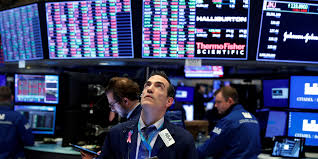Asian stocks faced downward pressure as concerns about China’s sluggish economic recovery led to cuts in growth forecasts and a warning from US Treasury Secretary Janet Yellen about potential ripple effects across the global economy. On Tuesday, stocks in mainland China and Hong Kong declined by 0.3% and 2% respectively. Following the announcement of several measures by the Chinese government to support household consumption, including encouraging financial institutions to offer reasonable loan rates, the market reaction was relatively muted. However, renewed concerns in the property sector led to significant losses for property developers, driven by China Evergrande Group reporting substantial combined losses over the past two years. The negative sentiment was further exacerbated by a warning of a funding shortfall from a key unit of Dalian Wanda Group.
Benchmark indexes in South Korea and Australia also experienced declines, while Japanese equities remained relatively stable, supported in part by gains in electric vehicle supply chain companies following positive developments such as Tesla Inc.’s stock advance and BYD Co.’s threefold increase in first-half net profit.
Investors were cautious due to China’s slower-than-expected economic recovery and its potential impact on global markets. Growth forecast cuts and Janet Yellen’s warning underscored the concerns surrounding China’s economic situation, prompting market participants to reassess their positions.
The property sector, a key component of China’s economy, faced renewed scrutiny as China Evergrande Group reported significant losses, heightening worries about the financial stability of the sector. Additionally, the funding shortfall warning from a unit of Dalian Wanda Group added to the negative sentiment surrounding the property market.
Despite the Chinese government’s efforts to boost household consumption through various measures, including encouraging favorable loan rates, the market response remained subdued, indicating the cautious sentiment prevailing among investors.















